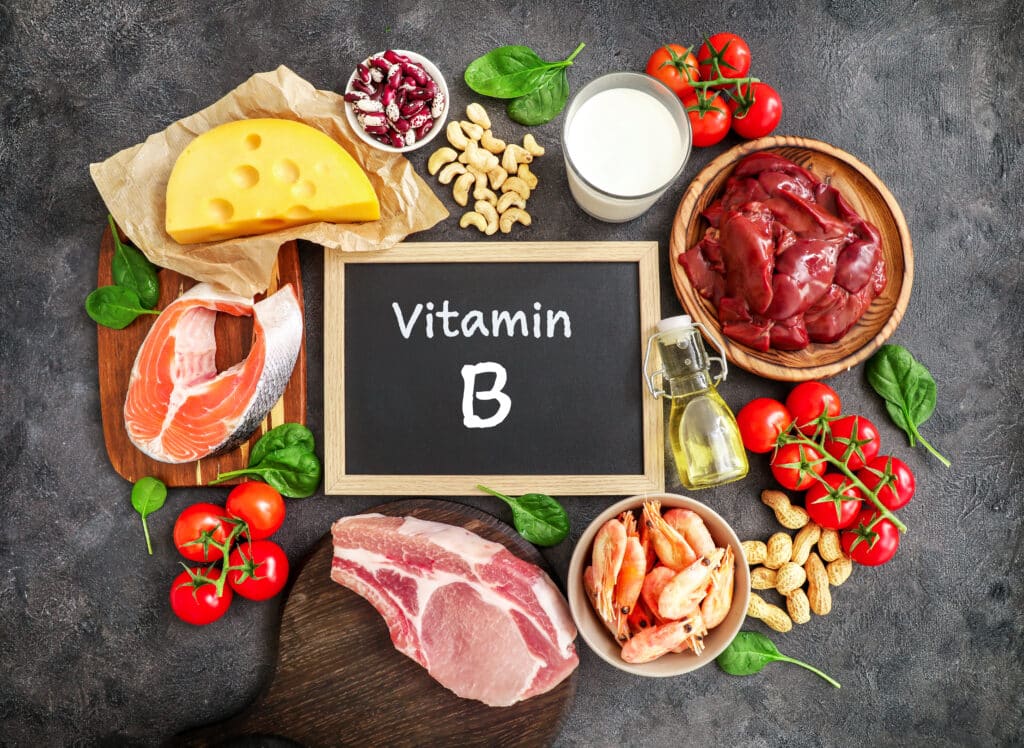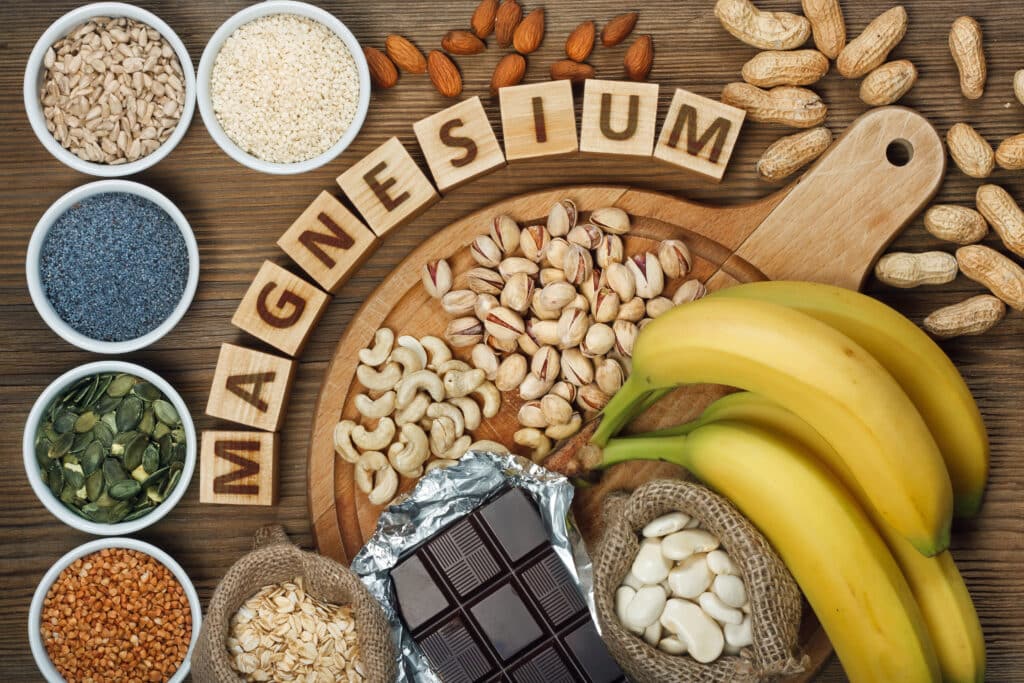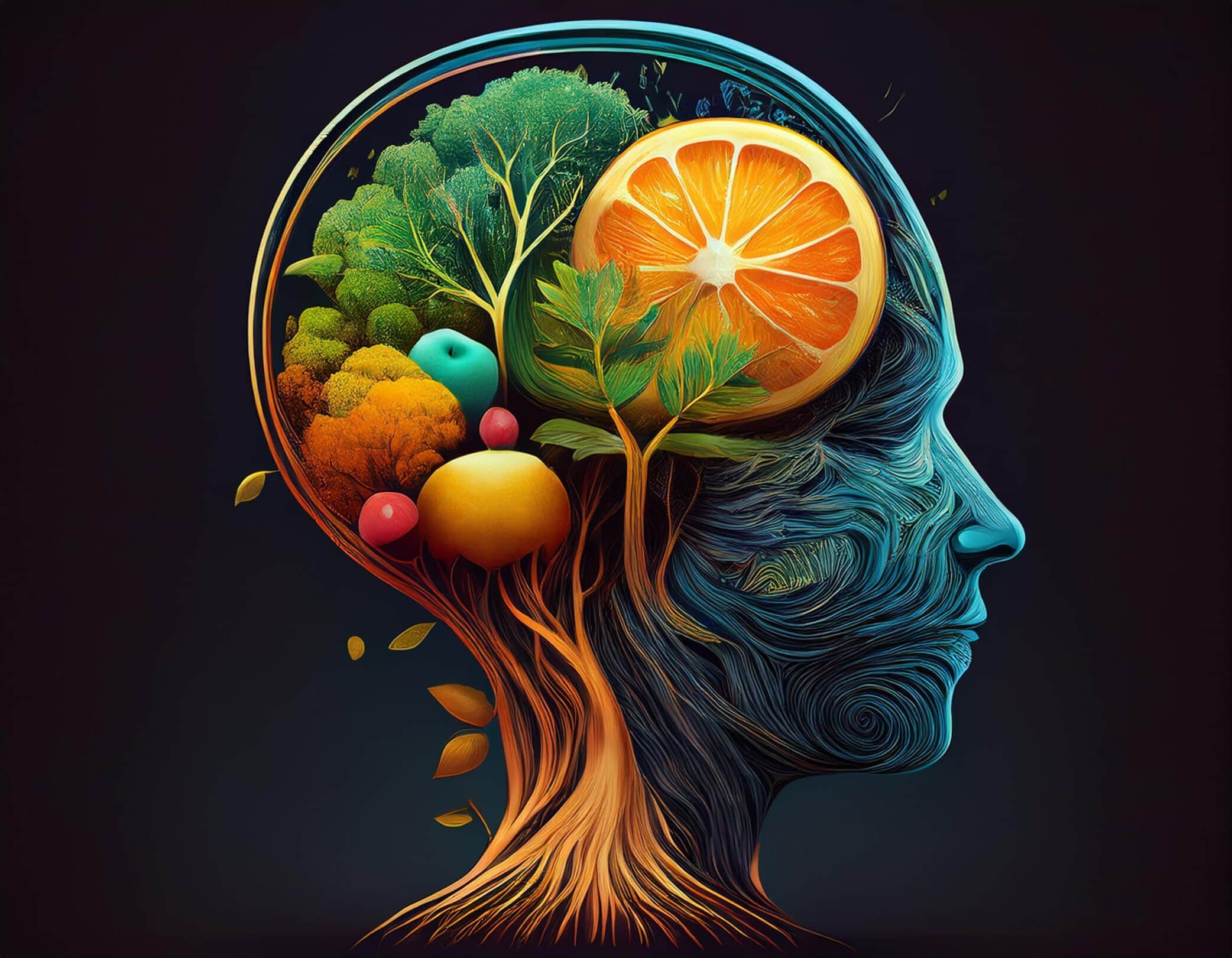The Role of Nutrition in our Mood
Understanding the nutrition mood connection is key to supporting emotional wellness.
The relationship between nutrition and mood is deeply tied to the gut-brain connection. Neurotransmitters — chemical messengers like serotonin, dopamine, and GABA — regulate mood, sleep, and emotional balance. Remarkably, about 90% of serotonin is produced in the gut, not the brain. This means that gut health directly impacts how well neurotransmitters function. Nutrients such as omega-3 fatty acids, B vitamins, magnesium, and probiotics play a vital role in supporting neurotransmitter production, reducing inflammation, and enhancing emotional well-being. A strong gut microbiome creates the foundation for better mental health.
Essential Nutrients for the Nutrition Mood Connection
Each of these nutrients plays a critical role in supporting your brain chemistry, emotional regulation, and overall mental resilience.
Omega 3 Fatty Acids

Omega-3 fatty acids are essential fats that play a critical role in brain health and emotional regulation. They help reduce inflammation, support neurotransmitter function, and have been linked to lower rates of depression and anxiety. Maintaining adequate intake is key for stable mood and cognitive performance.
Omega-3s regulate serotonin and dopamine, two neurotransmitters that influence mood balance.
Fatty fish like salmon, mackerel, and sardines, as well as plant-based sources like walnuts and flaxseeds, are excellent options.
In addition to healthy fats, certain vitamins are equally essential for maintaining emotional balance.
B Vitamins

B vitamins, including B6, B9 (folate), and B12, are crucial for brain function and mood regulation. They play a key role in neurotransmitter synthesis, energy metabolism, and reducing inflammation. Low levels of B vitamins have been associated with depression, irritability, and cognitive decline.
- B vitamins help produce serotonin and dopamine, essential neurotransmitters for emotional stability.
- Leafy greens, legumes, eggs, and fortified cereals are excellent sources of B vitamins.
Another critical nutrient for emotional well-being is magnesium, known for its calming effects on the brain.
Magnesium

Magnesium is a vital mineral involved in over 300 biochemical reactions in the body, including those that regulate mood and stress responses. It supports the production of GABA, a calming neurotransmitter, and helps control cortisol levels, the body’s primary stress hormone. Adequate magnesium intake can improve emotional resilience and promote better sleep quality.
For mood support, forms like magnesium glycinate or magnesium threonate are generally preferred.
- Magnesium aids in relaxation by enhancing GABA activity, reducing symptoms of anxiety and irritability.
- Nuts, seeds, leafy greens, and whole grains are rich dietary sources of magnesium.
Gut health also plays a vital role in mental health, making probiotics an important part of emotional wellness.
Probiotics

Probiotics are beneficial bacteria that support a healthy gut microbiome. Since the gut and brain are connected through the gut-brain axis, a balanced gut environment is crucial for mood regulation and emotional health.
- Probiotics help produce neurotransmitters like serotonin and GABA.
- Fermented foods like yogurt, kefir, kimchi, and sauerkraut are excellent sources of natural probiotics.
Antioxidants

Antioxidants help protect brain cells from oxidative stress, which has been linked to mood disorders like anxiety and depression. By neutralizing free radicals, antioxidants reduce inflammation and support cognitive function.
- Berries, dark chocolate, green tea, and colorful vegetables are rich in natural antioxidants.
A diet high in antioxidant-rich foods may improve focus, reduce brain fog, and support overall emotional well-being.
🧠 Final Thoughts on Nutrition and Mood
Understanding the connection between nutrition and mood gives you a powerful tool to support emotional well-being from the inside out. Therefore, small, consistent changes — like adding more omega-3s, B vitamins, magnesium, probiotics, and antioxidants to your diet — can make a noticeable difference in how you feel mentally and emotionally. Nourishing your brain is just as important as nourishing your body. As a result, taking care of your nutrition can have a profound impact on emotional wellness.
For more information about how nutrition can impact mental health, check out resources from Harvard Health and Cleveland Clinic.
🌟 Ready to Strengthen Your Mental Wellness?
At Lifetime Insight, we believe true emotional well-being starts from the inside out.
If you’re ready to take charge of your health, we’re here to guide you.
About the Author
Dr. Sarit Hovav, M.D., FAPA, is a board-certified psychiatrist with a passion for blending traditional medicine and holistic wellness. As the founder of Lifetime Insight, she helps individuals strengthen their mental health from the inside out — through evidence-based care, personalized nutrition, and compassionate support.
When she’s not working with patients, you’ll find her practicing competitive Latin dance, exploring farmers markets, or crafting the perfect cocktail.


